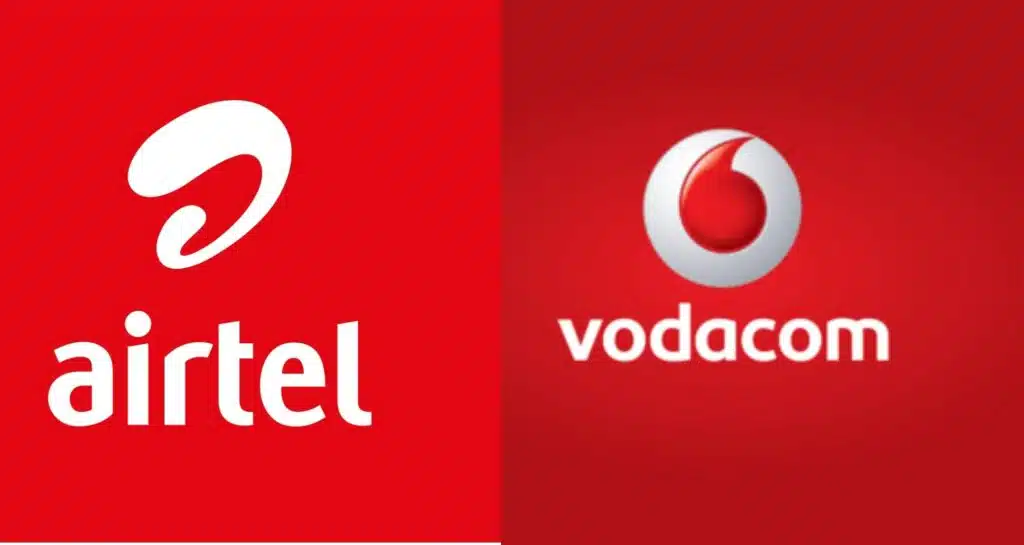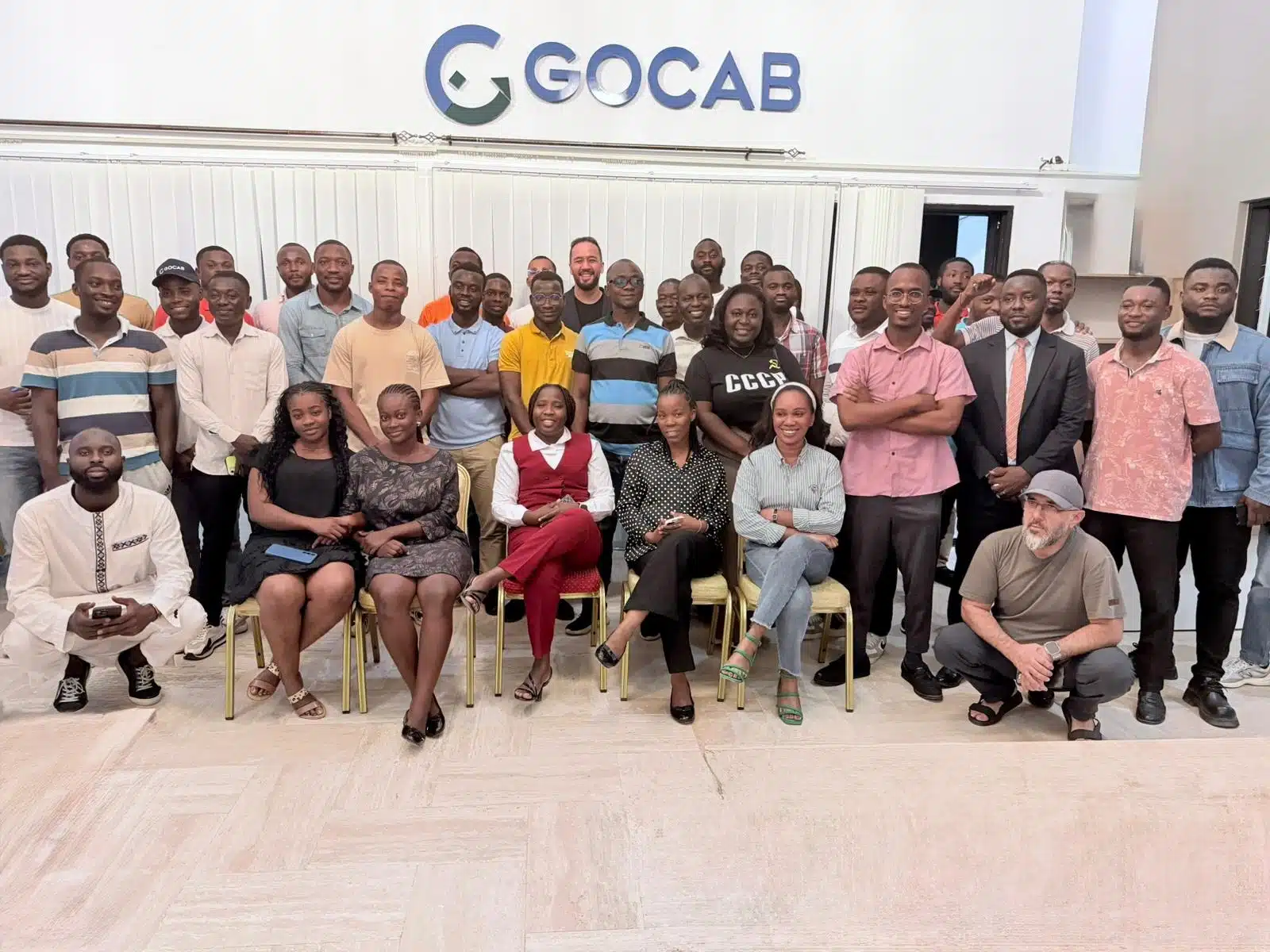Hallo,
Victoria from Techpoint here,
Here’s what I’ve got for you today:
- SSA lifts IHS Towers, but costs keep climbing
- Regulator approves Cell C’s big integration play
- Airtel, Vodacom partner to share towers, fibre in Africa
SSA lifts IHS Towers, but costs keep climbing

IHS Towers just dropped its Q2 2025 earnings, and there’s one clear winner in its global portfolio, sub-Saharan Africa (SSA). The region’s numbers popped, fuelled by organic growth and a hunger for mobile connectivity. But while SSA’s performance is glowing, the bigger picture is a bit messier thanks to currency swings and rising costs.
The SSA segment pulled in $127.8 million this quarter, up 18.1% from last year. Most of that came from new colocation deals, extra gear on existing sites, and fresh tower builds. Some smart tweaks, like power indexation and forex resets, also helped cushion the blow from shaky currencies in markets like Nigeria.
SSA is still IHS’s biggest market, with more than 16,000 towers in Nigeria alone. The region’s 644 million people are increasingly online as mobile operators race to roll out 4G and 5G. But profits took a knock, adjusted EBITDA for SSA slid 4.3% to $73.1 million, hit hard by the naira’s volatility and climbing power costs.
Company-wide, things weren’t as rosy. Total revenue dipped 0.5% year-on-year to $433.3 million, while adjusted EBITDA dropped nearly 8% to $219.2 million. The main culprit? Currency devaluation across several markets, with Nigeria alone wiping nearly 30% off adjusted EBITDA. Losses stayed heavy at $1 billion, thanks to a chunky $1.1 billion hit from convertible debt derivatives.
Still, IHS is making moves. It renewed a long-term lease deal with Airtel Zambia, sold its Rwanda operations for $274.5 million, and is doubling down on high-growth markets. Solar-powered towers are slowly replacing diesel, but the savings aren’t yet big enough to offset energy costs.
The outlook? IHS is sticking to its 2025 targets, up to $1.71 billion in revenue and as much as $980 million in adjusted EBITDA. SSA’s growth is doing the heavy lifting, but currency swings, power bills, and geopolitical risks will keep the company on its toes.

Victoria Fakiya – Senior Writer
Techpoint Digest
Stop struggling to find your tech career path
Discover in-demand tech skills and build a standout portfolio in this FREE 5-day email course
Regulator approves Cell C’s big integration play

If you thought the Cell C–Blue Label saga had run its course, think again. South Africa’s Competition Commission has just given the green light for Cell C , a mobile telecoms operator in the country, to take over Comm Equipment Company (CEC), a behind-the-scenes player that’s been keeping a chunk of its postpaid business running. And the kicker? The deal comes with zero strings attached.
CEC isn’t some random side hustle. It’s owned by The Prepaid Company (TPC), which itself is a fully owned arm of Blue Label Telecoms, the same Blue Label that also happens to be Cell C’s majority shareholder. In this shuffle, CEC will slide into Cell C’s hands, while Blue Label grabs more shares in the mobile operator.
So, what’s the big deal? Well, CEC handles marketing, billing, supply chain, credit, and collections for Cell C’s postpaid services. Up till now, that’s been run like an outsourced gig. Once it’s all in-house, Cell C can cut out the middleman, shave off costs, and keep tighter control over how it serves customers.
This isn’t happening in isolation. South Africa’s telecoms scene has been busy. Fibre giant Vumatel got the nod to scoop up Herotel. Vodacom, meanwhile, secured a conditional yes for its big stake in Maziv, the parent company of Vumatel and Dark Fibre Africa. It’s all part of a bigger wave of consolidation: companies pulling operations closer to home to stay competitive.
For Cell C, the timing couldn’t be more crucial. It’s been battling financial headwinds and stiff competition from Vodacom and MTN. By bringing CEC’s functions inside, it’s hoping to run leaner, move faster, and maybe even line itself up for that rumoured listing on the Johannesburg Stock Exchange.
For Blue Label, this is another power move: more influence over Cell C’s future and, possibly, a springboard for bolder plays down the line. And judging by the regulator’s no-fuss approval, there’s an appetite to let smaller operators strengthen their game without the heavy conditions slapped on the bigger players.
Airtel, Vodacom partner to share towers, fibre in Africa

Airtel Africa and Vodacom Group are teaming up to share fibre and tower infrastructure in Mozambique, Tanzania, and the Democratic Republic of Congo (DRC). The deal, still awaiting regulatory approval in each country, could speed up the rollout of 4G and 5G, boost connectivity, and cut costs for both telcos.
It’s another sign of a growing trend in Africa’s telecom scene. That is, rivals joining forces instead of going head-to-head on infrastructure. By tapping into each other’s networks, they can expand faster, especially in rural and hard-to-reach areas where building from scratch is expensive.
Vodacom boss Shameel Joosub says the partnership fits right into their plan to connect 260 million people by 2030. “Through infrastructure sharing, we can provide cost-effective services to more people, more rapidly, ensuring no one is left behind in the digital age,” he said.
Airtel Africa’s CEO, Sunil Taldar, is just as upbeat. For him, this isn’t just about faster Internet. It’s about opening up more digital and financial opportunities, even for communities that are currently off the grid. “Working with Vodacom, we will open greater access to digital and financial opportunities that can transform lives,” he said.
The big focus here is fibre, the backbone of fast Internet. Without it, 4G and 5G can’t really shine. From high-quality video streaming to mobile banking, the low-latency connections fibre delivers are essential for the apps and services people now rely on daily.
If it all goes to plan, the collaboration could mean fewer people get left behind in Africa’s digital shift and might just close the gap between urban centres and the underserved corners of the continent.
In case you missed it
- MTN Uganda sees data revenue overtake voice in H1 2025 earnings
What I’m watching
- When the Body Says No – The Unlikely Link Between Stress, Trauma & Disease | Gabor Maté
- Celeste Headlee: 10 ways to have a better conversation | TED
Opportunities
- Techpoint Africa is live in Kigali, Rwanda! Join us today, on August 13 at Norrsken House Kigali from 4:30 p.m. to 6:30 p.m. for an electrifying evening of bold conversations, powerful insights, and fresh ideas on what it truly takes to build borderless technology across Africa. To attend, register here.
- Want to attend an evening of connection, conversation, and insight on how data is shaping East Africa’s creative economy? Join Communiqué on Thursday, August 21 at 6pm at Alliance Française, Nairobi, featuring Brian Kimanzi, Mars Maasai (HEVA Fund), Ezy Onyango (PAIPEC-CCI), Wangui Njoroge and more. Register here.
- Moniepoint is hiring for several positions. Apply here.
- Lagos Business School is looking for an Instructional Designer. Apply here.
- Max Drive is hiring a Facility/ Administrative officer. Apply here.
- Moove is looking for a Maintenance Executive. Apply here.
- Glovo is looking to fill several roles. Apply here.
- Businessfront, the parent company of Techpoint Africa, is looking for a Researcher and Scriptwriter Intern for Businessfront TV. Apply here.
- Building a startup can feel isolating, but with Equity Merchants CommunityConnect, you can network with fellow founders, experts, and investors, gaining valuable insights and exclusive resources to help you grow your business. Click here to join.
- Help us make Techpoint better for you! Your feedback shapes what comes next (your responses may potentially save my job. A bit dramatic, but still). It will only take 30 seconds to tell us what works and what doesn’t. Fill it here.
- To pitch your startup or product to a live audience, check out this link.
- Have any fresh products you’d like us to start selling? Check out this link here.
- Follow Techpoint Africa’s WhatsApp channel to stay on top of the latest trends and news in the African tech space here.
Have a wonderful Wednesday!
Victoria Fakiya for Techpoint Africa.









